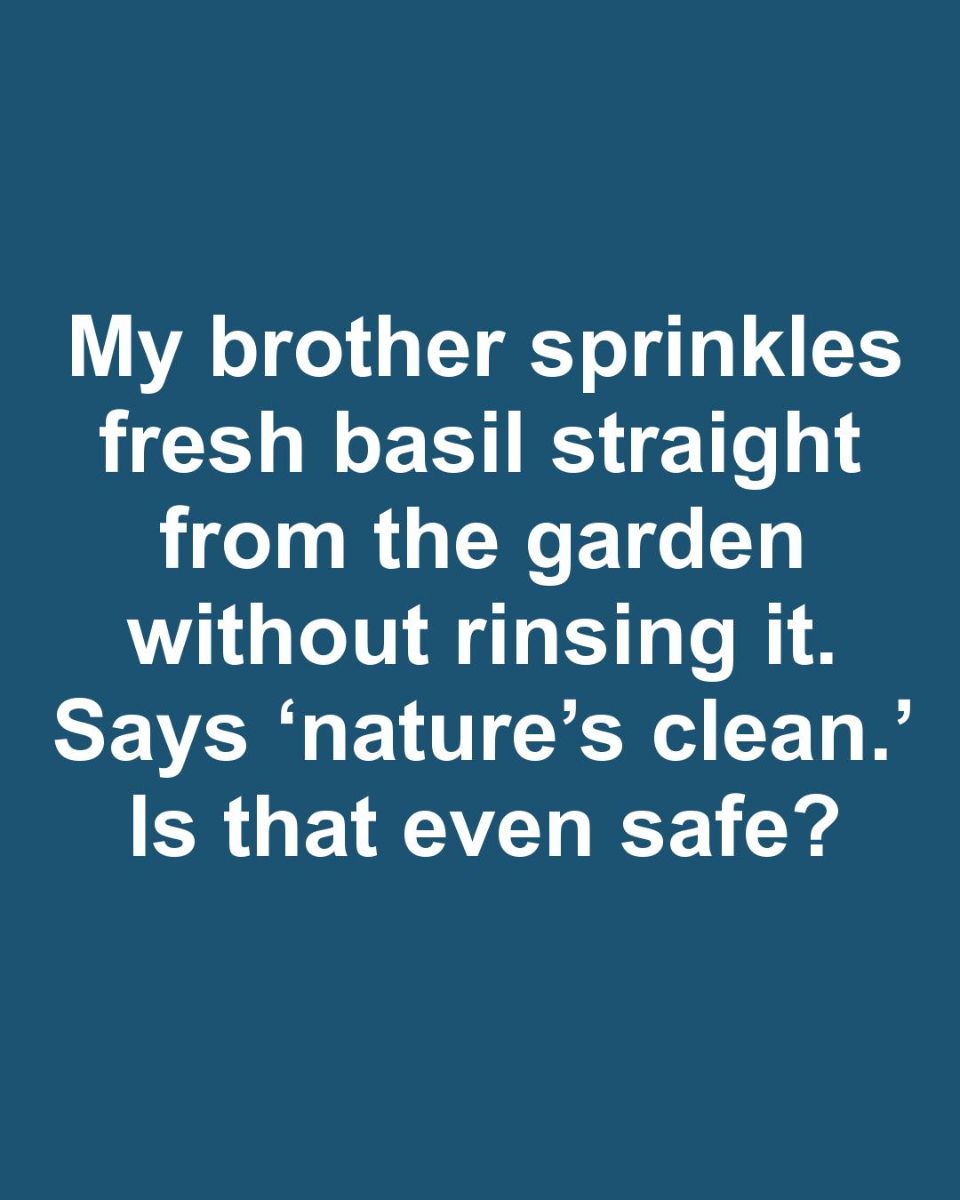In many households, the use of fresh herbs directly from the garden is a common practice, celebrated for its flavor and aroma. However, a debate often arises about whether these herbs should be rinsed before use. My brother, for instance, insists on sprinkling fresh basil straight from the garden without rinsing it, claiming 'nature's clean.' This raises an important question: is it safe to consume unwashed herbs directly from the garden? This article explores the safety concerns and benefits associated with this practice, providing a comprehensive look at both sides of the argument.
Understanding the Importance of Washing Fresh Produce
Washing fresh produce is a widely recommended practice to remove dirt, bacteria, and potential pesticide residues. The Centers for Disease Control and Prevention (CDC) advises rinsing fruits and vegetables under running water before consumption to minimize the risk of foodborne illnesses. This is particularly important for leafy greens and herbs, which can harbor microorganisms in their crevices. Understanding the potential contaminants that can be present on fresh produce underscores the importance of washing them thoroughly.
Advertisement
The Case for Rinsing: Potential Risks of Unwashed Herbs
Unwashed herbs, even when grown in a home garden, can be exposed to various contaminants. Soil can harbor bacteria such as E. coli or Salmonella, which can cause serious health issues if ingested. Additionally, herbs may come into contact with animal feces, insects, or other environmental pollutants. The risk of contamination, although lower in a controlled garden environment compared to commercial farms, still exists and should not be overlooked.
Nature's Clean: Exploring the Argument for Skipping the Rinse
Proponents of the 'nature's clean' philosophy argue that home-grown herbs are less likely to be contaminated with harmful chemicals or pathogens compared to store-bought produce. They believe that the natural environment of a garden, free from industrial pollutants, provides a cleaner and safer product. Additionally, some argue that rinsing can wash away essential oils and flavors that contribute to the herb's culinary value. This perspective emphasizes a trust in natural processes and a desire to preserve the integrity of the fresh produce.
Scientific Perspective: What Experts Say About Unwashed Herbs
Experts in food safety generally recommend washing all produce, including herbs, before consumption. According to the Food and Drug Administration (FDA), washing helps reduce the risk of ingesting harmful bacteria and pesticides. While the risk may be lower for home-grown herbs, experts still advise caution, as even organic gardens can harbor natural contaminants. Scientific studies have shown that rinsing under running water can significantly reduce the presence of pathogens on fresh produce, making it a simple yet effective safety measure.
Comparing Garden-Grown and Store-Bought Basil
Garden-grown basil is often perceived as fresher and more flavorful compared to store-bought varieties, which may have been harvested days or weeks prior. However, store-bought basil typically undergoes a more rigorous cleaning process before reaching consumers. While garden-grown basil offers the advantage of knowing exactly how it was cultivated, it lacks the standardized safety checks that commercial produce undergoes. This comparison highlights the trade-offs between freshness and safety protocols.
Practical Tips for Safely Using Fresh Basil
To enjoy fresh basil safely, consider a few practical tips. First, inspect the leaves for any visible dirt or damage. Rinse the basil under cool, running water, gently rubbing the leaves to remove any surface contaminants. Pat the leaves dry with a clean towel or use a salad spinner to remove excess moisture. If concerned about bacteria, a vinegar solution (one part vinegar to three parts water) can be used for a more thorough clean. These steps help ensure that the basil is both safe to eat and retains its vibrant flavor.
Advertisement
Conclusion: Balancing Convenience and Safety
While the idea of using unwashed basil straight from the garden is appealing for its convenience and perceived purity, it is important to weigh the potential risks. Washing herbs is a simple precaution that can significantly reduce the risk of foodborne illness. By balancing the desire for fresh, flavorful herbs with the need for food safety, individuals can enjoy the best of both worlds. Ultimately, the decision to rinse or not should be informed by an understanding of the potential risks and benefits, allowing for a safe and enjoyable culinary experience.

